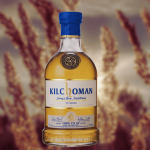The Artisanal Spirits Company (ASC), owner of the Scotch Malt Whisky Society (SMWS), reported a 3% increase in gross profit for the first half of 2024, ending June 30. Despite this positive result, the company’s net debt climbed to £27 million (US$35m).
In their interim financial results, ASC highlighted a £1 million (US$1.3m) improvement in EBITDA compared to the same period in 2023. However, their final results confirmed that EBITDA for H1 2024 was still negative at -£1 million (-US$1.3m). Revenue for the company reached £10.1 million (US$13.21m), reflecting a slight 1% decline year-on-year.
ASC also reported recurring cost savings of £750,000 (US$981,760) and a gross profit margin improvement of £250,000 (US$327,230). CEO Andrew Dane commented on the performance, calling it “credible” given the economic landscape. He added, “We’ve managed to deliver £1m of profit improvement, and maintaining flat revenue under current conditions is, in my view, a solid performance.” Dane attributed the improvement to rigorous cost management, supporting better gross margins.
Growth and Membership Expansion
SMWS saw its total membership grow by 4%, bolstered by a 31% surge in Asia, particularly following the establishment of subsidiaries in Taiwan and South Korea in August and April 2023, respectively. Membership now totals 40,300.
In addition to membership growth, ASC has continued to diversify both geographically and within its corporate structure, thanks in part to cask sales initiated late last year and the acquisition of Single Cask Nation earlier in 2024. This diversified approach, Dane noted, has been a driver of profit momentum.
Addressing Debt and Chinese Market Challenges
Regarding ASC’s rising debt, Dane explained that the increased investment in stock, alongside seasonal cash flow timing, were primary factors. “We’re quite seasonal, but our net debt has now peaked and is on the decline,” Dane said. He also mentioned that the company expects to reduce its spending on new spirits from £5 million per year to £1 million. Full profitability, however, is still anticipated to be a few years away.
Dane highlighted difficulties in the Chinese market due to industry and economic challenges, with results in China falling by 30%. Despite the downturn, there was still modest growth in membership, especially within the £50 to £100 price range. To offset the challenges in China, the company is focusing on attracting a small group of high-net-worth individuals.
Asset Valuation and Strategic Outlook
ASC’s stock of cask spirits has been independently valued at over £100 million (US$131m), four times its net book value and net debt combined. This inventory is projected to meet the company’s demand for the next decade. Dane emphasized the long-term value of this strategy, noting, “We spent £25 million on these casks; they’re now worth £100 million. The next step is turning those casks into bottles, which could potentially drive their value to £500 million.”
For the second half of 2024, ASC aims to broaden its international presence, release two new distillery offerings, and refresh its product range. Upcoming SMWS releases include the ‘Creators’ Collection’ and the 2024 ‘Winter Series’. Expansion into Vietnam and Nigeria is also on the horizon, both of which rank among the top 20 markets for ultra-premium spirits according to the IWSR.
Future Expectations
Reflecting on ASC’s future, Dane noted that the firm has consolidated its profitability from the first half of the year and remains on course to meet its FY24 EBITDA expectations. In his concluding statement, he said, “We’ve made solid progress towards profitability despite the challenges in some markets. Our strategy of investing in whisky stock has built an impressive inventory that positions us well for the next decade.”
Dane also emphasized the successful integration of Single Cask Nation and the growing diversity of ASC’s revenue streams, minimizing risk exposure to individual markets. He concluded with optimism: “With a clear strategy and focus on key profitability drivers such as cask sales and U.S. shipments, we remain confident in delivering on our FY24 EBITDA goals.”













